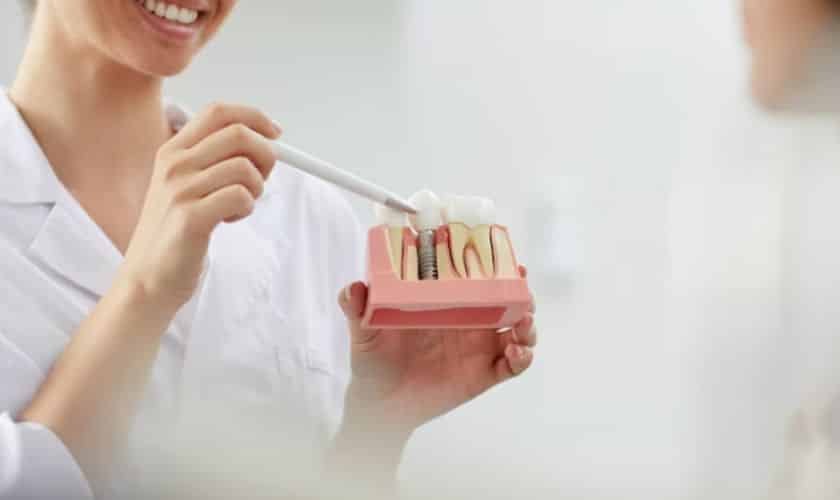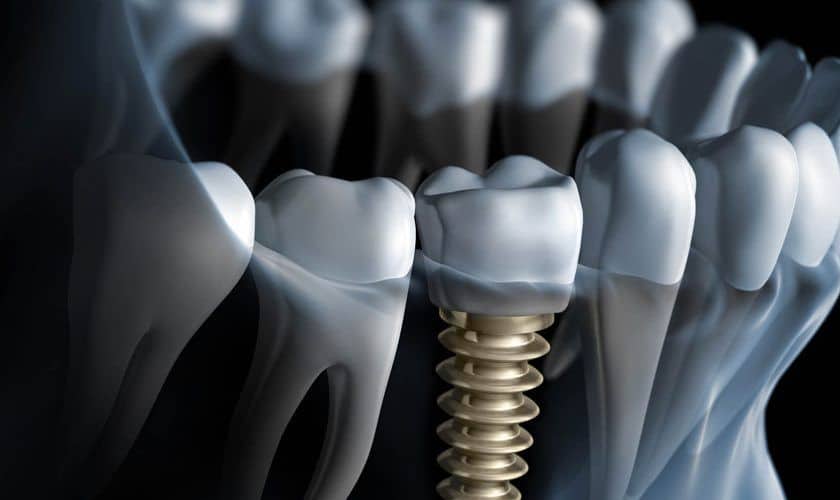Welcome to the world of dental implants, where the wonders of modern dentistry meet the desire for a beautiful, functional smile. Dental implants are the groundbreaking solution for replacing missing teeth and restoring confidence. Dental implants seamlessly integrate with your jawbone and provide a sturdy foundation for lifelike replacement teeth that look and feel natural. Say goodbye to gaps, discomfort, and self-consciousness, and embrace a new dental health and aesthetics chapter. In this guide, we will explore the remarkable benefits of dental implants, the innovative techniques involved, and how they can truly transform your life by giving you the smile you’ve always dreamed of.
Understanding Dental Implants
Dental implants are a revolutionary solution for replacing missing teeth and restoring oral function and aesthetics. They are titanium posts surgically inserted into the jawbone, acting as artificial tooth roots. The implants provide a strong and stable foundation for attaching custom-made dental crowns or prosthetic teeth. The implants fuse with the jawbone through osseointegration, ensuring long-term stability and durability. Dental implants offer numerous benefits, including improved chewing ability, enhanced speech, preserved facial structure, and a natural-looking smile. They also eliminate the need for removable dentures or bridges, providing a permanent and comfortable tooth replacement option for individuals seeking to regain their confidence and oral functionality.

Positive Aspects of Dental Implants
1. Enhanced Appearance: They blend seamlessly with natural teeth, providing a natural and aesthetically pleasing smile. They are designed to match the shape, color, and size of your existing teeth, creating a harmonious and attractive overall appearance.
2. Improved Functionality: They function like natural teeth, allowing you to eat, speak, and chew comfortably and confidently. Unlike removable dentures, implants are firmly anchored to the jawbone, providing stability and eliminating any concerns of slippage or discomfort while eating or speaking.
3. Long-lasting Solution: They can last a lifetime with proper care and maintenance. Unlike other tooth replacement options, such as dental bridges, implants do not rely on neighboring teeth for support, which helps preserve the integrity of your natural teeth.
4. Preserved Oral Health: They help maintain the health of your jawbone and prevent bone loss. When a tooth is missing, the underlying jawbone can deteriorate over time. Implants stimulate the bone, promoting healthy bone growth and preserving the structure of your face.
Note: Each person’s situation is unique, and it is best to consult with a dental professional to determine if dental implants are the right solution for you.
The Dental Implant Process
1. Consultation and Planning: The dental implant process begins with a comprehensive consultation with a dental professional. They will assess your oral health, evaluate the suitability of dental implants, and create a personalized treatment plan based on your specific needs and goals.
2. Implant Placement: The next step is the surgical placement of the dental implant into the jawbone. This procedure is typically performed under local anesthesia, ensuring minimal discomfort. The implant serves as a sturdy foundation for the replacement tooth or teeth.
3. Osseointegration: After implant placement, osseointegration occurs, during which the implant fuses with the jawbone over several months. This fusion provides stability and durability to the implant, mimicking the natural tooth root.
4. Restoration: Once osseointegration is complete, a custom-made dental crown, bridge, or denture is attached to the implant. This restoration is designed to match the color, shape, and size of your natural teeth, ensuring a seamless and natural-looking result.
Regular follow-up visits will be scheduled to monitor the healing process and ensure the success of the dental implant.
Maintenance of Dental Implants
1. Good Oral Hygiene: Maintaining excellent oral hygiene is crucial for the long-term success of your implants. Brush your teeth at least twice daily using a soft-bristle and fluoride toothpaste. Floss daily to clean between the teeth and around the implant area.
2. Regular Dental Check-ups: Schedule regular dental check-ups and cleanings with your dentist to monitor the health of your implants. Your dentist will assess the implant’s condition, check the surrounding gums, and professionally clean the implant and restoration.
3. Avoid Harmful Habits: Protect your implants by avoiding habits that can damage them. Avoid chewing on hard objects like ice or pens, as this can exert excessive force on the implant. Additionally, please refrain from smoking, as it can impair healing and increase the risk of complications.
By following these maintenance practices, you can help ensure your implants’ longevity and optimal function.
Source : Dr. Brett Langston
In conclusion, Dental implants are a unique solution for replacing missing teeth and restoring oral health and function. With their ability to provide a sturdy foundation and natural-looking results, they have transformed the lives of many individuals. By choosing dental implants, you can enjoy a confident smile and an improved quality of life for years. Consult with your dentist to explore this transformative option and take the first step toward rebuilding your dental foundation.
FAQs:
1. What are dental implants?
They are titanium posts surgically placed into the jawbone to replace missing tooth roots. They are a foundation for attaching artificial teeth, such as crowns, bridges, or dentures.
2. Are they painful?
The procedure is performed under local anesthesia so you won’t feel pain during the surgery. After the procedure, some discomfort and swelling may occur, but it can be managed with pain medication prescribed by your dentist.
3. How long do they last?
With proper care and maintenance, they can last a lifetime. They are designed to be a permanent solution for missing teeth and offer exceptional longevity compared to other tooth replacement options.
4. Can anyone get them?
Generally, most healthy individuals with adequate jawbone density can be candidates for such implants. However, a thorough examination by a dentist is necessary to determine if you have sufficient bone mass and overall oral health to support the implants.
5. Are they covered by insurance?
The coverage varies depending on the insurance plan. While some dental insurance plans provide partial coverage for implants, others may not cover them at all. It’s best to check with your insurance provider to understand the specifics of your coverage.




